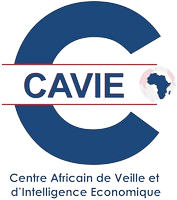[ACCI-CAVIE] An Engineer who graduated from ESIGELEC in Rouen, Frank William NZOUETOM was also trained at Harvard Business School in Boston.
Experienced consultant on digital issues and associated risk management, he works for the benefit of the European and African ecosystems.
As International Consultant, Frank NZOUETOM is passionate about reflections related to the development of Africa via digital technology.
He is also the author of several articles such as the “Artificial Intelligence and Social Development in Africa”, “African Intellectual and Digital Property”, “Teleworking and Cybersecurity”, “Central Africa in search of its Digital Independence”.
The Editorial Team


